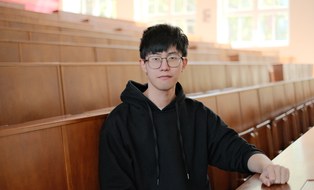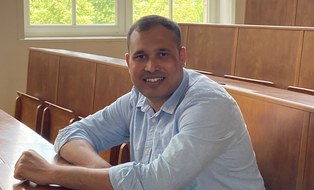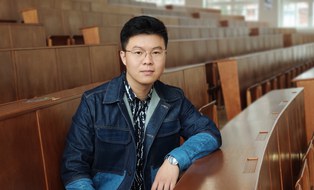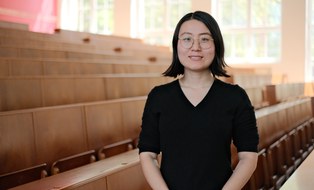Available Thesis Topics
The following overview lists currently available topics for scientific internships, study theses, master theses and diploma theses. However, it may not always be comprehensive. The topics can be finalised after personal coordination with the head of chair or the designated contact persons. Please attach your CV and transcript to your inital contact E-Mail.
Currently available topics
The emergence of interconnected and autonomous technologies has transformed traffic intersection control. While numerous methods have been proposed, real-world experiments are rare due to ethical and safety concerns. The Miniature Connected, Cooperative and Automated Mobility Laboratory (MiniCCAM lab), part of the Chair of Traffic Process Automation, seeks to bridge this gap. This lab comprises scaled-down road scenarios and interconnected robotic vehicles, enabling the replication of real traffic scenarios in a controlled setting. It intends to introduce elements like imperfect communication and truly autonomous vehicles. This project marks the initial step toward the lab's long-term objective. It focuses on creating a validation framework for both centralised and decentralised control methods.
Language
English
Contact person
 © VPA
© VPA
Research associate (Ph.D. candidate)
NameYikai Zeng M.Sc.
Send encrypted email via the SecureMail portal (for TUD external users only).
Chair of Traffic Process Automation
Chair of Traffic Process Automation
Visiting address:
Gerhart-Potthoff-Bau, Room POT 58 Hettnerstraße 3
01069 Dresden
The rapid advancements in technology and access to big datasets have boosted progress in predicting traffic using advanced learning-based models. Traffic prediction is crucial as it serves as the backbone for intelligent transportation systems (ITS), playing a pivotal role in enhancing traffic management, reducing congestion, and improving road safety. In this context, deep learning provides sophisticated models capable of handling complex and large traffic data, enabling more accurate and reliable predictions. This thesis aims to explore the latest advancements and trends in this area, studying new technologies and methods, and evaluating their practicality and effectiveness. More precisely, the research seeks to identify current knowledge gaps, understand how various deep learning models can adapt to traffic prediction tasks, and explore future scopes.
Proposal: Quantification of Urban Public Parking Space
Requirement
Good proficiency in Python, with a good understanding of machine learning frameworks for data analysis
Language
English
Contact person
 © VPA
© VPA
Research associate
NameJyotirmaya Ijaradar M.Sc.
Send encrypted email via the SecureMail portal (for TUD external users only).
Chair of Traffic Process Automation
Chair of Traffic Process Automation
Visiting address:
Gerhart-Potthoff-Bau, Raum POT 67 Hettnerstraße 3
01069 Dresden
As cities grow larger and busier, understanding how people travel from one place (Origin) to another (Destination) - commonly known as Origin-Destination (OD) estimation - becomes crucial for intelligent transport systems (ITS). Precise OD estimations help improve traffic management, identify optimal routes, reduce traffic congestion, and ensure that people travel efficiently and comfortably. With VAMOS traffic data, we can estimate travel patterns (OD) more accurately and adaptively using a data-driven approach. This thesis aims to delve into data-driven methods, particularly deep learning, to estimate the OD matrix using traffic monitoring data. The research focuses on two primary objectives: firstly, to thoroughly investigate various data-driven models for estimating the OD matrix, and secondly, to evaluate their accuracy and applicability, with a special emphasis on VAMOS data.
Requirement
Basic proficiency in Python and C++, with a good understanding of deep learning frameworks such as PyTorch or TensorFlow
Language
English
Contact person
 © VPA
© VPA
Research associate
NameJyotirmaya Ijaradar M.Sc.
Send encrypted email via the SecureMail portal (for TUD external users only).
Chair of Traffic Process Automation
Chair of Traffic Process Automation
Visiting address:
Gerhart-Potthoff-Bau, Raum POT 67 Hettnerstraße 3
01069 Dresden
Requirement
Advanced knowledge in Python and PyTorch, or C++
Language
German or English
Contact person
 © VPA
© VPA
Research associate (Ph.D. candidate)
NameDipl.-Ing. Markus Runhao Zhou
Send encrypted email via the SecureMail portal (for TUD external users only).
Chair of Traffic Process Automation
Chair of Traffic Process Automation
Visiting address:
Gerhart-Potthoff-Bau, Room POT 68 Hettnerstraße 3
01069 Dresden
Requirement
- Ongoing studies in Automotive Engineering, Electrical Engineering, Mechanical Engineering, Transport Engineering or a comparable degree program
- Knowledge of Python and/or C++
Language:
German or English
Contact person
 © VPA
© VPA
Research associate (Ph.D. candidate)
NameDipl.-Ing. Markus Runhao Zhou
Send encrypted email via the SecureMail portal (for TUD external users only).
Chair of Traffic Process Automation
Chair of Traffic Process Automation
Visiting address:
Gerhart-Potthoff-Bau, Room POT 68 Hettnerstraße 3
01069 Dresden
Requirements
- Advanced knowledge of Python (e.g. Pandas, NumPy, Matplotlib, scikit-learn)
- Experience with ROS (Robot Operating System)
- Ideally experience with sensor data (e.g. GPS, speed, acceleration)
Language
German or English
Contact person
 © VPA
© VPA
Research associate (Ph.D. candidate)
NameXinyu Zhang M.Sc.
Send encrypted email via the SecureMail portal (for TUD external users only).
Chair of Traffic Process Automation
Chair of Traffic Process Automation
Visiting address:
Gerhart-Potthoff-Bau, Room POT 261B Hettnerstraße 3
01069 Dresden
